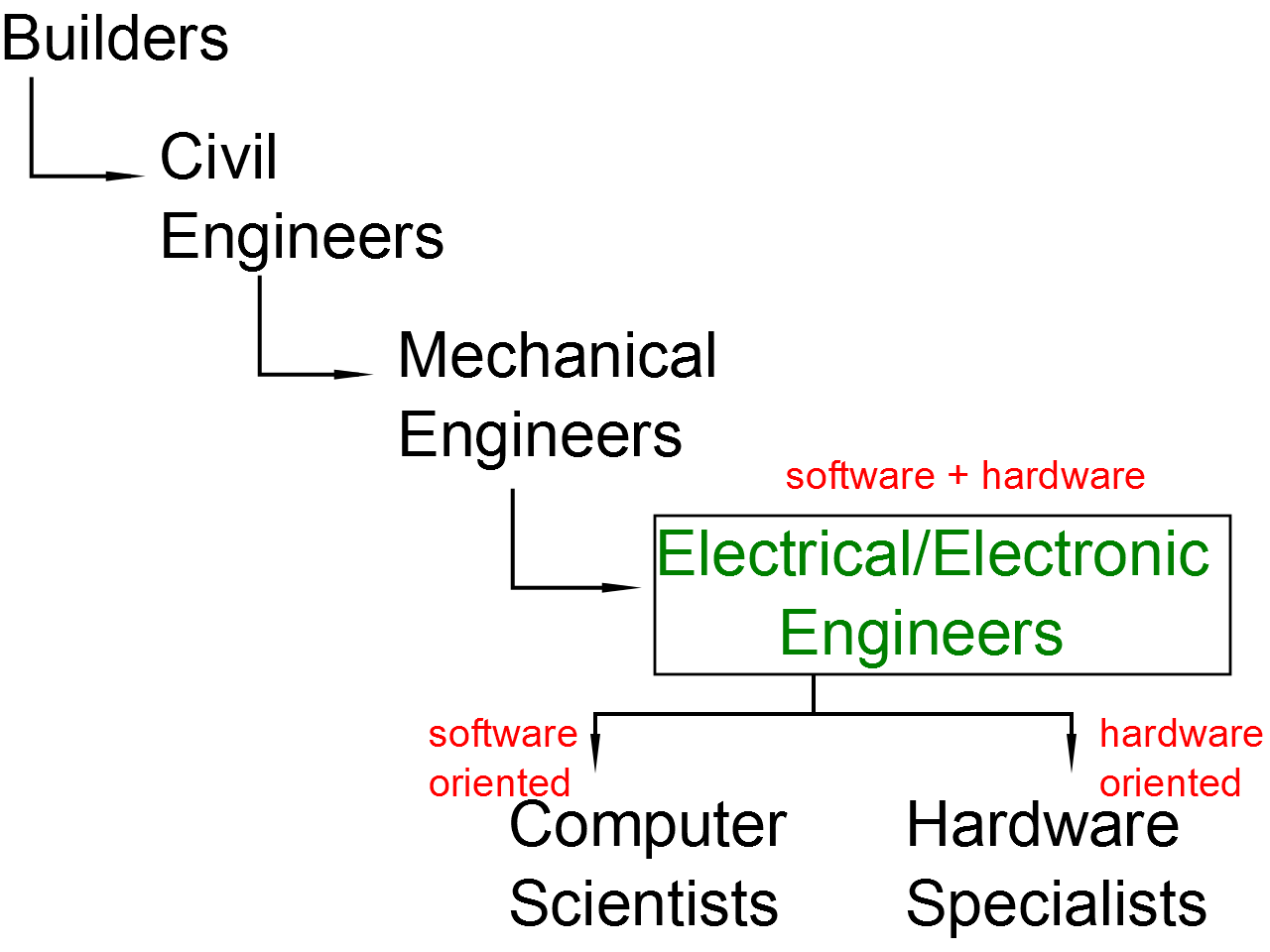Department of Electrical and Information Engineering, University of Nairobi (UoN)
Contents
Program Brief
The program aims to develop competency in both software and hardware development on the backbone of the Raspberry Pi single board computer. This is to be accomplished in early level Electrical and Electronic Engineering students who have some prerequisite knowledge of basic programming as well as simple circuit design concepts.
From the simplified analysis of engineering development depicted; electrical/electronic engineers are the custodians of both software and hardware knowledge. In modern practice, these knowledge bases are treated as mutually exclusive. However, electrical/electronic engineering is the art and science of software-hardware interaction (SHI).
Background
In an assessment of departmental education at the University of Nairobi, it was found that final year Electrical and Electronic Engineering students preferred theoretical descriptive projects over practical-experimental, simulation or design ones. It was also found that a growing number of graduates were moving into non-engineering based professions such as banking and auditing. These professions make use of the inherent analytical skills gained in learning engineering but avoid the physical building of devices and systems.
It was detemined that there is a need for renewed interest in practical electrical/electronic engineering aspects in light of a global climate of emergent SHI technologies:
- Mobile Applications Development
- Embedded Systems Development
- Internet of Things
- Open-source Driven Technology
This interest, however, must be sparked early.
The Raspberry Pi is attractive to this end due to its affordability, adaptability and robustness. It lends itself well to the SHI concept as it is an open hardware platform on which software can be created, loaded and used.
Program Specifics
The program is envisioned as a series of software and hardware hybrid lab exercises in line with the SHI concept. These lab exercises will:
- Address software and hardware problems using the Raspberry Pi
- Labs will be interlaced (alternate between software and hardware)
- Labs will be constrained but have multiple solutions
- Labs done later will build on theory from earlier ones
- Labs will incoroprate some digressions to encourage student-out-of-box (SOOB) thinking
Laboratory Exercise Outline
Program Research Team Members
- Prof. Heywood Absaloms Ouma (Principal Invesigator)
- Mr. Ahmed Sayyid (Investigator)
- Mr. Kinyua Wachira (Investigator)
- Mr. Nicholus Kimali (Evaluator)
- Mr. Christopher Waweru (Technologist)
- Mr. Bonface Munyole (Technologist)
Roles
- Principal Investigator - Co-ordination, accounting, documentation, reporting and is the principal trainer
- Investigator - Development of experiments, preparation of resource material, lab supervision and training of technical staff
- Evaluator - Independent assessment of program
- Technologist - Software and hardware preparation and laboratory assistance
